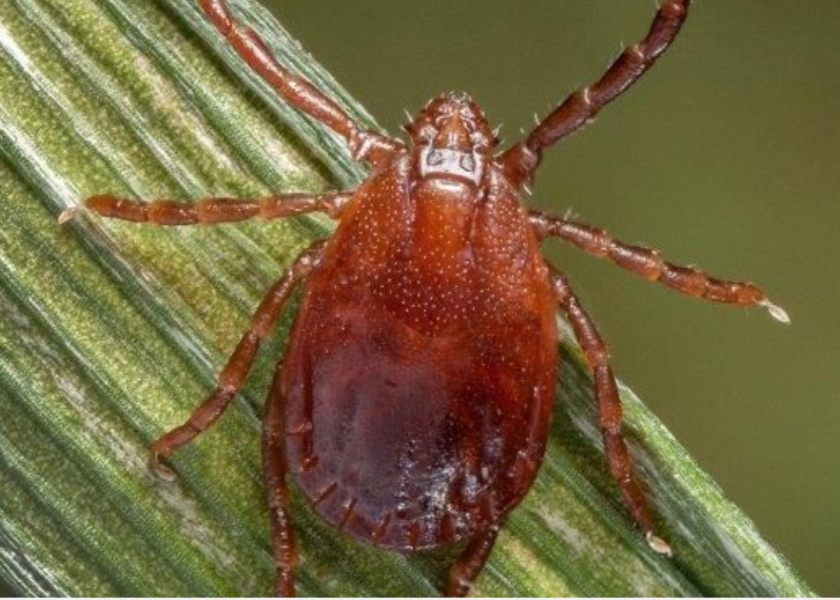Webinar Symposium to Discuss Small Tick Causing Big Problems for Cattle

The National Cattlemen’s Beef Association (NCBA), in conjunction with the United States Department of Agriculture (USDA), is hosting a two-day webinar symposium to address concerns regarding the Asian Longhorned Tick and the pest’s possible impact on the U.S. cattle industry. The free virtual event will be held Aug. 23-24 from noon to 3:45pm (Eastern) each day.
“Our goal is to inform and educate cattle producers across the country about this potential threat,” said Dr. Kathy Simmons, NCBA’s chief veterinarian.
The two-day webinar is designed to provide cattle producers, state animal health officials, veterinarians, and other key stakeholders with current information from industry experts about how to identify and manage the tick. Veterinarians from currently affected states and USDA officials will discuss disease implications as well as possible treatment options and prevention of ticks on animals and in pastures.
"The U.S. Department of Agriculture is pleased to work with producers, industry stakeholders, and animal health experts to identify ways to mitigate the spread of invasive species and the diseases they carry,” said Dr. Mark Lyons, assistant director of the Ruminant Health Center at the U.S. Department of Agriculture, Animal and Plant Health Inspection Service (USDA-APHIS), Veterinary Services Strategy and Policy Unit. “We thank the National Cattlemen's Beef Association for their partnership in organizing this event and we look forward to a constructive conversation on reducing the threat posed by the Asian Longhorned Tick."
The Asian Longhorned Tick is an invasive exotic pest first found in the United States in 2017. Since then, it has spread to 17 states ranging from the South all the way up through the East Coast. The tick is extremely mobile, spreading to new locations by attaching to people, birds, pets and wild animals, however, it can survive for up to a year in the environment without attaching to a host. Because it is smaller than a sesame seed, it is also difficult to detect.
The tick is extremely aggressive and can cause stress and severe blood loss in cattle. The tick also carries diseases such as bovine Theileriosis, a disease that causes anemia, failure to grow (ill-thrift), persistent infection, reproductive problems, and in some cases, death. There is currently no approved treatment against Theileria orientalis, leaving cattle at risk.
“This tick species is of great concern, but producers can protect their herd through frequent inspection and by reporting sightings to their veterinarian or local animal health official,” said Dr. Simmons. “The first step is knowing what to look for, and I encourage producers to participate in this important webinar to receive the most current information.”
For more information, and to register, visit www.ncba.org.







